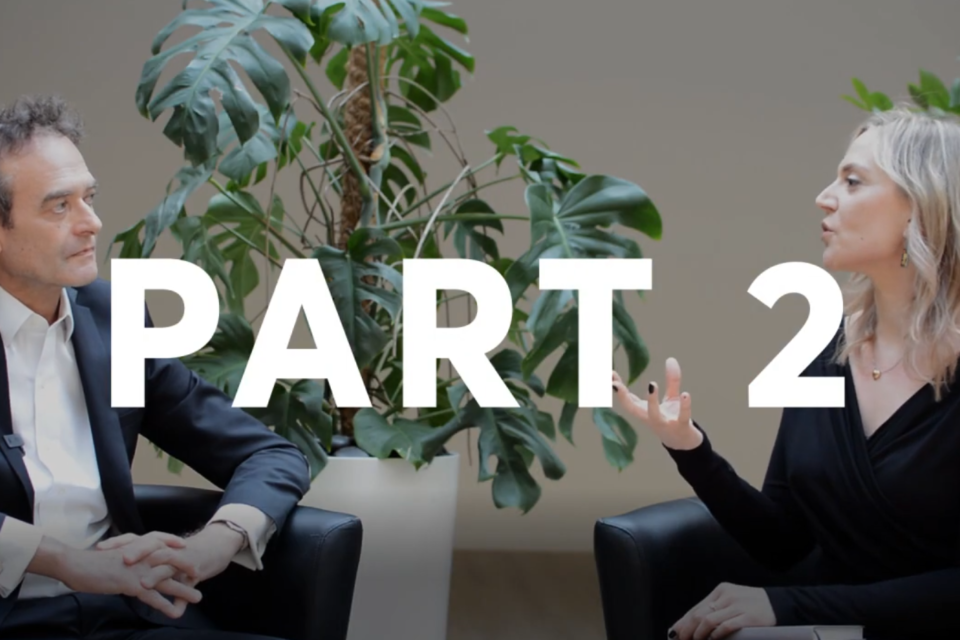In his latest Insights article, Public Affairs Maven and Chairman of Mavence Forum Paul Adamson examines the evolving nature of the talent market in a post-Covid world, with a particular focus on shifting generational perspectives and what it means to feel connected and engaged in the workplace.
The talent pool in the Brussels bubble is both wide and deep. As organisations embark on a ‘return to the office’ in the hopes that the most restrictive Covid-related measures will be unnecessary in the future, employers wrestle with the challenges that this return brings to the fore – as well as with a newly (re)discovered sense that circumstances can swing more quickly than in the past, and that nothing should be taken for granted. This forward-looking balancing act, as well as the unique talent pool particular to the international hub of the European institutions, is the backdrop against which these new and evolving challenges will be played out.
From the perspective of the younger generations of European professionals, there is an interesting paradox that has emerged in the Brussels bubble that reflects this new context. At a time when so many young professionals in particular are seeking gainful employment – in a Covid-shocked economy and in a traditionally highly competitive job market – these same aspirants are increasingly discerning in the kind of EU public policy and advocacy positions under consideration. Just when external ‘environmental’ factors would encourage observers to expect young job seekers to “take what they can get”, instead we see a clearer affirmation of intrinsically motivated priorities and a willingness to hold out in the face of uncertainty.
Employers have in some cases responded in part by raising the bar in terms of qualifications and experience for the strategically important role of public affairs, seeking stronger individual champions to step forward and advance the flag in this new environment, but expectations are a two-way street and as with the younger professionals both sides seem to be moving in parallel rather than directly.
Organisations large and small, for instance, are increasingly coming to terms with the fact that up-and-coming talent in particular are simply not motivated in the same way and by the same factors as the generations which preceded them – a phenomenon which in truth predates Covid, but which has been reinforced and accelerated by the pandemic. Younger professionals, on the other hand, are not looking for the stability that has traditionally been associated with the ‘job for life’ career, but for purpose-driven impact, diversity of experience, and flexibility that reflects more a more qualitative sense of priorities when it comes to defining success – which is just as well, as the private sector no longer seems willing or able to offer such long-term job security.
While they remain important, the long-standing pillars of professional compensation – the prospect of promotion, longevity, and of course real “bottom line” of salary – are no longer the undisputed masters of the contract negotiation. As a new generation of talent and a new mosaic of intrinsic and extrinsic motivators gain traction in the workforce, it is therefore only a matter of time before the workplaces they increasingly join or return to post-Covid must themselves transform to attract, retain, and motivate the employees they need to sustain themselves.
Despite these dynamics already playing out across organisations and sectors, there is one key area where both employers and employees share a common challenge in this new era of work: how to maintain the quality of work and sense of “productivity” as individuals and groups when the new norm means spending a large chunk of one’s time away from the office, away from colleagues, and away from many of the formal and informal structures and ‘rituals’ which create a sense of organizational cohesiveness.
Nevertheless, on balance, more senior professionals appear less fazed by this new state of affairs, appreciating that such new working practices can be enormously beneficial for those who are not only more likely to be juggling family commitments, but whose roles and responsibilities tend to reflect more advanced stages in their careers that synergize more intuitively with the evolving nature of work.
Younger professionals rightly do not share this perspective, which is a double blow: not only do their positions make them more vulnerable to the drawbacks or weaknesses inherent in such a new status quo, but their own self determined priorities place a premium on the kind of organizational culture, connectedness, and diversity of experience and exposure that working alone from home can effectively suffocate.
The mere presence of more senior colleagues and managers – a feature of shared office workplaces as sure as printer paper and coffee breaks – is just one such loss to remote work, and the absence of guidance, training, and mentorship opportunities for young professionals can leave an entire generation without the same system of support and opportunity that previous employers simply took for given. Regardless of whether such benefits are recognized for what they are, or whether those involved even feel they need them to the same extent, the consequences of their absence are just one of the long-term challenges that organisations and their leaders will have to grapple with for years to come.
This last consideration highlights in particular an essential point that both employers and employees will need to reflect on, which is seeking a common appreciation of what is required – and what is desired – on both sides of this new working environment. This common appreciation captures all of the different facets already noted: generational trends, reimagined compensation, organizational cohesion, team productivity, leadership, and individual priorities that are more fragmented and fluid than the hierarchical pillars of the past. New working practices, like the spaces we may soon hope to return to, will need to be crafted as a shared responsibility, one based on mutual understanding and adaptability.
Paul Adamson


